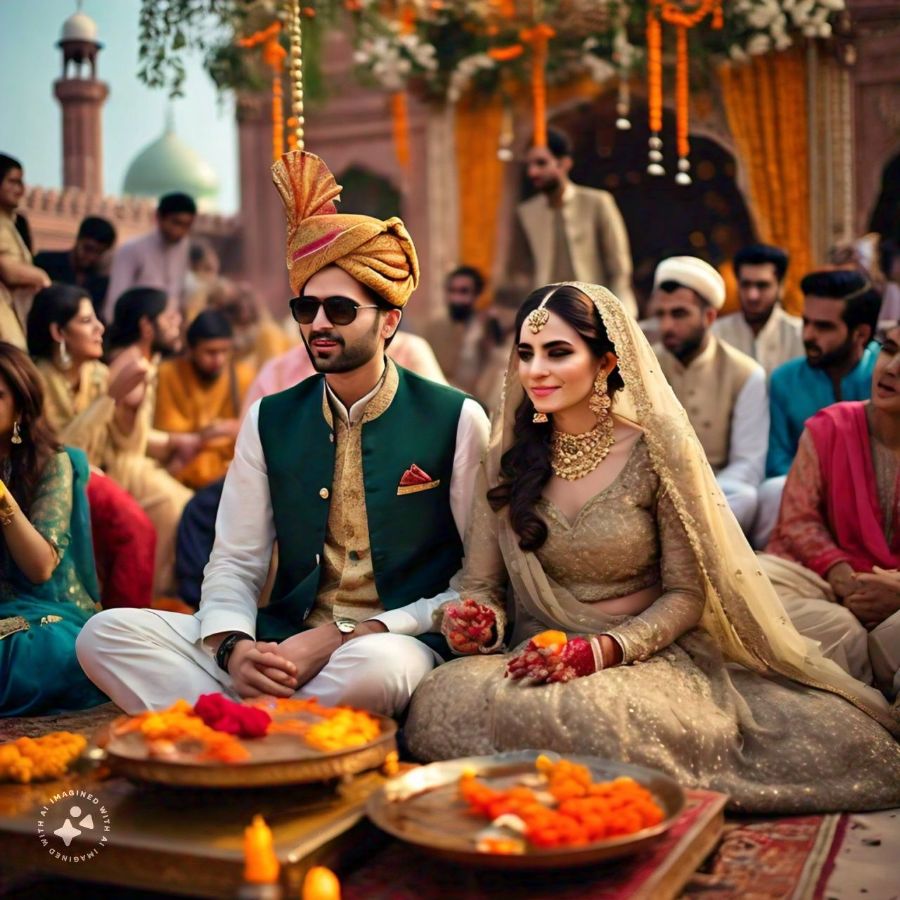
The Vibrant and Joyous Celebration of Pakistani Weddings
Pakistani weddings are a vibrant and joyful celebration of love, family, and culture. These grand events bring together friends and family from far and wide to witness the union of two souls. A Pakistani wedding is a colorful and lively affair, filled with traditional customs, delicious food, and lively music.
Pre-Wedding Traditions
The wedding preparations begin weeks in advance, with the bride and groom's families busy with preparations. The bride's hands and feet are adorned with intricate henna designs, believed to bring good luck and blessings. The groom's family presents the bride with a beautiful dress and jewelry, symbolizing their acceptance and welcome into their family.
The Mehndi Ceremony
The Mehndi ceremony is a significant pre-wedding tradition, where the bride's hands and feet are decorated with henna. This ceremony is usually held at the bride's home, surrounded by her friends and family. The groom's friends and family also join in, making it a lively and festive occasion. The Mehndi artist creates intricate designs, which are believed to bring good luck and happiness to the couple.
The Barat Ceremony
On the wedding day, the groom's procession, known as the Barat, sets out for the bride's home. The groom is accompanied by his friends and family, who dance and sing to the beat of drums and trumpets. The Barat is a grand spectacle, with the groom dressed in a elegant sherwani, riding a decorated horse or car. The procession is a symbol of joy and celebration, announcing the arrival of the groom.
The Nikah Ceremony
The Nikah ceremony is the main wedding event, where the bride and groom are officially married in the presence of their families and a religious leader. The ceremony is a beautiful blend of Islamic traditions and Pakistani culture. The bride and groom are seated separately, and the religious leader recites prayers and blessings, formalizing their union.
The Walima Ceremony
After the Nikah, the bride and groom are treated to a grand feast, known as the Walima. This is a time for celebration and merriment, with delicious food, lively music, and joyful dancing. The Walima is a symbol of the couple's new beginning, and is often attended by hundreds of guests.
Post-Wedding Traditions
After the wedding, the bride and groom are showered with gifts and blessings from their loved ones. The bride's family presents the groom with a traditional turban, symbolizing his new status as a married man. The couple is also given a send-off, with the bride's family bidding her farewell as she begins her new life with her husband.
Regional Variations
Pakistani weddings vary across different regions, each with its unique customs and traditions. In Punjab, the bride and groom are showered with rose petals and flowers, while in Sindh, the bride is given a traditional ajrak and sindhi topi. These regional variations add to the richness and diversity of Pakistani weddings.
Conclusion
Pakistani weddings are a true reflection of the country's rich culture and heritage. These grand celebrations bring together people from all walks of life, filling their hearts with joy, love, and happiness. If you ever have the chance to attend a Pakistani wedding, consider yourself lucky – it will be an experience you will cherish forever!

